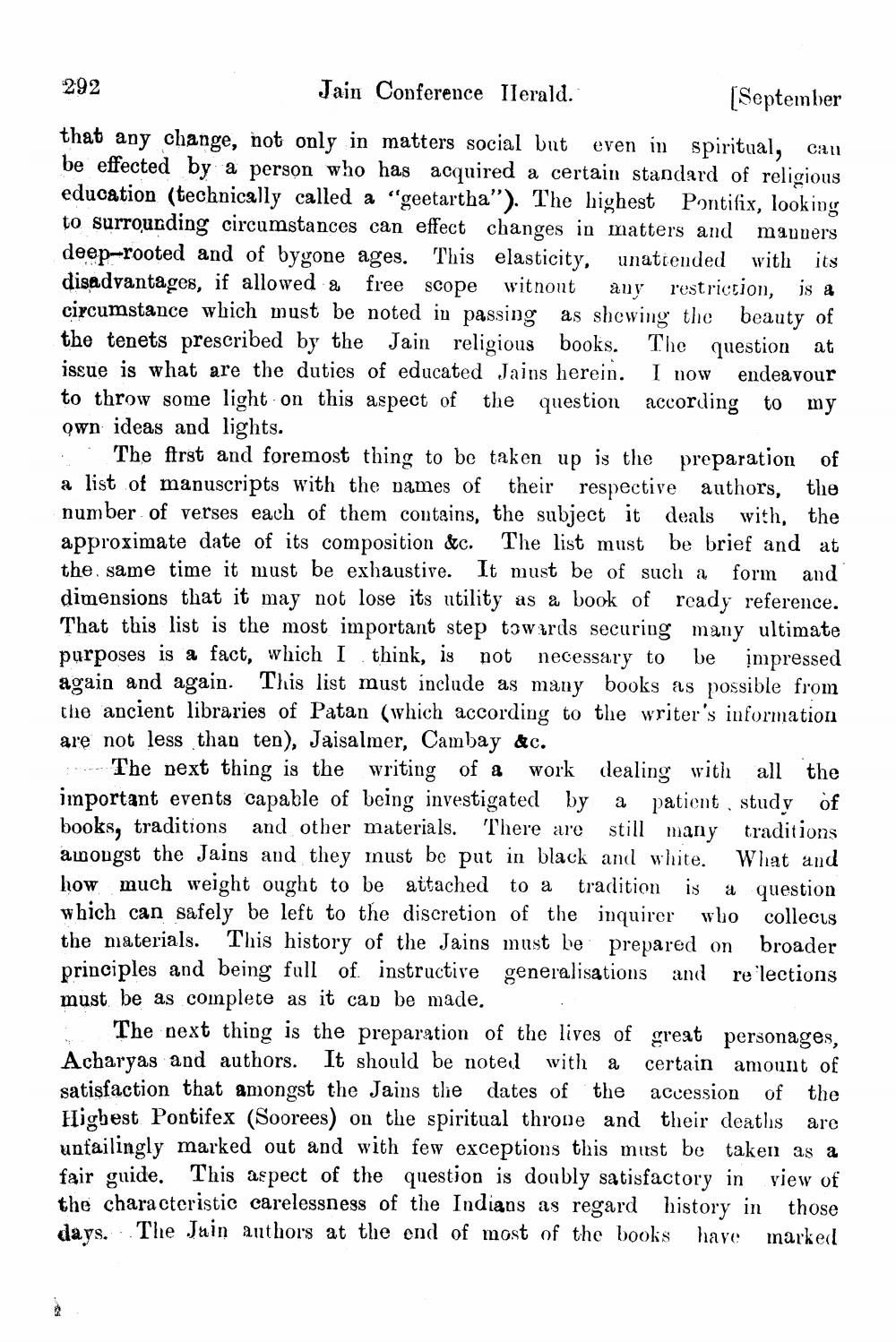________________
292
Jain Conference Ilerald.
(September
that any change, not only in matters social but even in spiritual, can be effected by a person who has acquired a certain standard of religious education (technically called a "geetartha"). The highest Pontifix, looking to surrounding circumstances can effect changes in matters and manners deep-rooted and of bygone ages. This elasticity, unattended with its disadvantages, if allowed a free scope witnout any restriction, is a circumstance which must be noted in passing as shewing the beauty of the tenets prescribed by the Jain religious books. The question at issue is what are the duties of educated Jains herein. I now endeavour to throw some light on this aspect of the question according to my own ideas and lights. :The first and foremost thing to be taken up is the preparation of a list of manuscripts with the names of their respective authors, the number of verses each of them contains, the subject it deals with, the approximate date of its composition &c. The list must be brief and at the same time it must be exhaustive. It must be of such a form and dimensions that it may not lose its utility as a book of ready reference. That this list is the most important step towards securing many ultimate purposes is a fact, which I think, is not necessary to be impressed again and again. This list must include as many books as possible from the ancient libraries of Patan (which according to the writer's information are not less than ten), Jaisalmer, Cambay &c.
The next thing is the writing of a work dealing with all the important events capable of being investigated by a patient study of books, traditions and other materials. There are still many traditions amongst the Jains and they must be put in black and white. What and how much weight ought to be aitached to a tradition is a question which can safely be left to the discretion of the inquirer who collects the materials. This history of the Jains must be prepared on broader principles and being full of instructive generalisations and relections must be as complete as it can be made.
The next thing is the preparation of the lives of great personages, Acharyas and authors. It should be noted with a certain amount of satisfaction that amongst the Jains tlie dates of the accession of the Highest Pontifex (Soorees) on the spiritual throne and their deaths are unfailingly marked out and with few exceptions this must be taken as a fair guide. This aspect of the question is doubly satisfactory in view of the characteristic carelessness of the Indians as regard history in those days. The Juin anthors at the end of most of the books have marked




